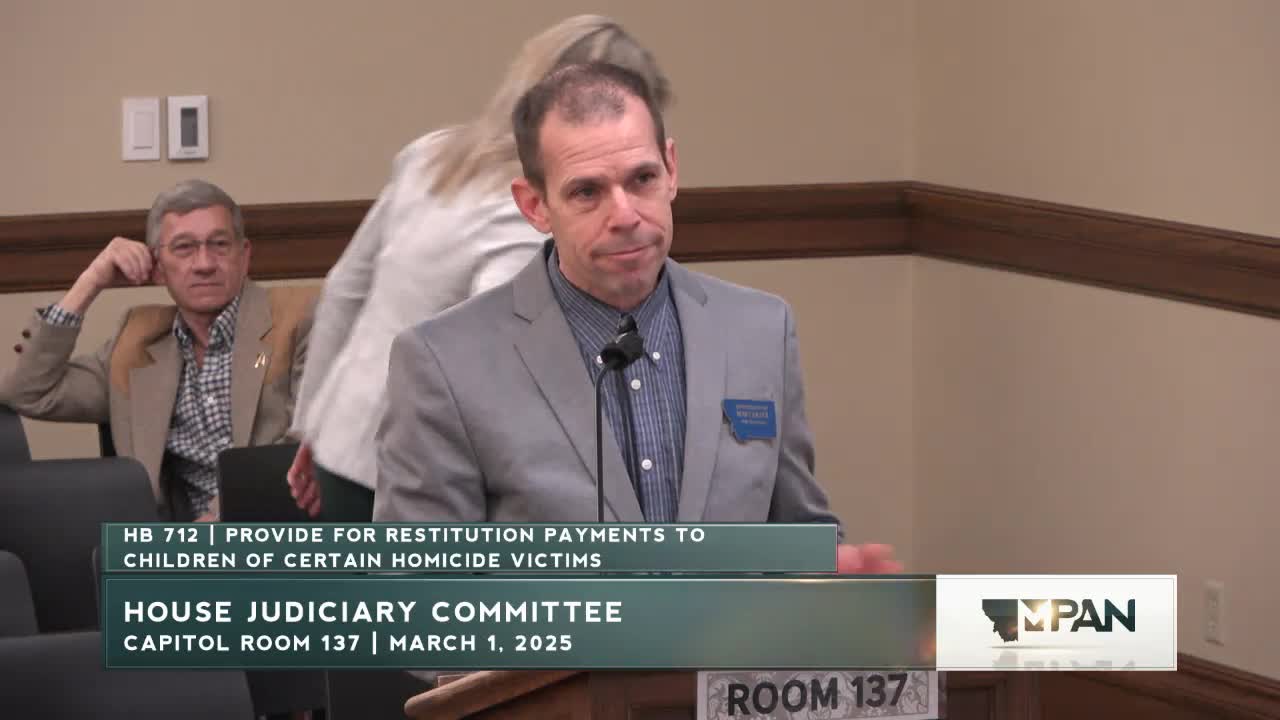Heated hearing on bill to limit state ownership of water rights and set a deadline for water court adjudication
Get AI-powered insights, summaries, and transcripts
Subscribe
Summary
House Bill 676 would prevent state trust lands from taking ownership of private groundwater rights used on adjacent private land, require sale of certain landlocked trust parcels to lessees, and set a fixed end date for the water court's adjudication process. Proponents argued the bill protects private property and leaseholders; opponents — the
Representative Brandon Lear and water-rights proponents told the committee HB 676 would protect private water-right holders from having the state claim ownership of a water right if the well and diversion are located on private land even though water is used for an adjacent state trust lease. "Right now in the state, the land board has the ability to take private water from the water right holder that is being used on state land and make it a state water right. What this bill aims to do is end that," Lear said.
Supporters including the Senior Ag Water Rights Alliance, Rocky Mountain Stockgrowers and a lineup of ranchers and leaseholders argued that producers invest in wells, pumps and improvements, and that the state should not appropriate those private investments when water for irrigation is used temporarily on leased state sections. Proponents urged a statutory limit on water-court authority and recommended a fixed sunset date (amendment language discussed that would allow a 2031 cutoff) for the specialized water court, arguing the adjudication was intended to be temporary when established decades ago.
Opponents included Lieutenant Governor Kristin Juras, the Montana Hospital Association (which spoke on fiduciary trust obligations), Trout Unlimited, the Montana Water Resources Association and other irrigation and conservation stakeholders. The lieutenant governor warned the bill could endanger Montana's primacy under the McCarran Amendment because federal claims and Indian water compacts remain unresolved, and she asserted that the state has a fiduciary duty to defend water rights appurtenant to state trust lands for the benefit of public-school trust beneficiaries. Trout Unlimited and others urged maintaining the water court to finish adjudication correctly rather than imposing a hard sunset that could leave unresolved claims and invite relitigation in district courts.
Several county and grazing stakeholders urged faster adjudication and accused the water court of delay, while conservation groups warned the proposal could invite wholesale relitigation of decrees and complicate interstate and tribal compact approvals. The committee heard technical questions about whether water rights are improvements vs. property appurtenant to parcels, compensation formulas for infrastructure and how appeal paths would function if the water court is eliminated.
Ending: The hearing was long and divided; opponents emphasized constitutional and trust-duty issues and asked for more study; the transcript shows the hearing closed without a committee vote recorded.
